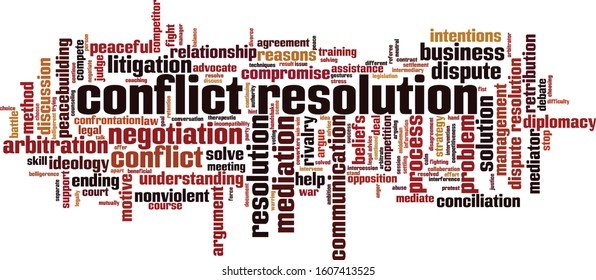We are all social animals! We all deal and communicate with a number of people on a daily basis, be it personal life, romantic life, or professional life. Our daily life, and the goals we set for ourselves, is defined largely by how we navigate our relationships. And when we deal with people, disagreements and conflicts are bound to happen! These are not just daunting and disturbing, but also take away a lot more!
But the truth is…
Conflicts are just a part of life, these are inevitable because we are human, we love to connect with people, we need to socialise with people, and since we all grew up in different environments, and different settings, our values, our teachings obviously differ. In the journey of life we are going to encounter people who think, work, and deal with things in an entirely different and unique way as compared to ours. Have you ever noticed, members of the same household, who live under one roof, are not all alike? We meet countless numbers of individuals throughout our life, and these individuals have a massive influence on us and on our personality. Hence, It is nearly impossible today to grow up in a family, work at a job, or have relationships without experiencing multiple conflicts.
And this is absolutely normal and healthy, experiencing conflicts in a relationship is not a sign of fragility. It can, rather, be seen as an opportunity to improve and set healthy boundaries.
The Outstanding thing about conflict, though, is that it is completely resolvable.
Conflict resolution is a skill and a process that enables us to conciliate whatever the issue is. It allows us to come to a mutual agreement and find a common ground to work on, peacefully and healthily. If not dealt efficiently and with the right strategies it can possibly destroy our relationships.
Why should we resolve conflicts in the first place?
Being in a weird space with someone can be extremely tiring and it has the power to make us feeble, it can drain energy, affect work-life balance and other areas of life.
Recall the time when you had a heated argument or any disagreement with your mother, or your partner, or your team member…how did it feel then? What emotions and feelings came up for you at that moment? In what ways did you deal with the dispute?
I am sure it did not feel good at all! Also, conflicts are scary and frightening, especially if you are someone who was never taught or demonstrated how to show up to such situations, then the situation can get even more scary and unpleasant. For example, you might start avoiding dealing with the conflicts or taking a stand for yourself, or even isolate yourself from social situations resulting in low self-esteem, lack of social skills and some other concerns that might negatively affect your quality of life. Research shows that having acquired such unhealthy coping skills can be damaging for yourself and your relationship dynamics.
But here is some good news, just like any other skill or teaching that you have learned till now, can be unlearned and relearned. Since resolving a conflict is a skill, you can also learn it and discover the strategies that work for you.
Some common conflict resolution strategies for any kind of dynamic The most important goal of conflict resolution is to build mutual respect, and encourage each other to come to a conclusion in a united and co-operative way. But here is some truth, if you want your conflict to go away; you must be willing to put in effort.
Here are some general strategies
Acknowledging the issue – Before starting to work towards any issue resolution, the first step is to acknowledge that there is some kind of issue that is damaging the present relationship.
Communicating – Expression and clarification, active communication is the core of resolving any issue that involves more than one person. This step does not just include expressing our concerns to the other person, but also actively listening to what the other person has to say. By providing each other a safe space to express, rapport and respect is established and everyone, whoever is involved, feels comfortable. (listen with the motive to understand and not just respond or reply).
Collaborating and finding solutions or alternatives – Work together and brainstorm the ideas to find a common ground. Sometimes the common ground is not achieved, in that case, you can accept and respect other people’s opinions. We encourage you to show kindness and set healthy boundaries.
Coping with the stress or other irritants – During the entire process, feeling overwhelmed is very common, do not beat yourself up for this. Keep taking timeouts, keep yourself hydrated and set some ground rules. Some common ground rules that we use in therapy are…avoid using swear words, do not interrupt when another person is speaking, take breaks and show empathy during those breaks and avoid blaming each other.
Involving a professional can help you to get a better understanding of the situation. Counsellors and Coaches can help you upskill yourself to better face such challenges! You can also try attending some self developmental workshops on this topic.
You may want to explore self development programs on MiindMyMiind.com to enable yourself to lead a Miindfully healthy life by becoming healthily Miindful!
Click to know more or drop us a query support@miindmymiind.com or Contact us :- 9888130005
Article written by a mental health professional Mx. Kirti!


